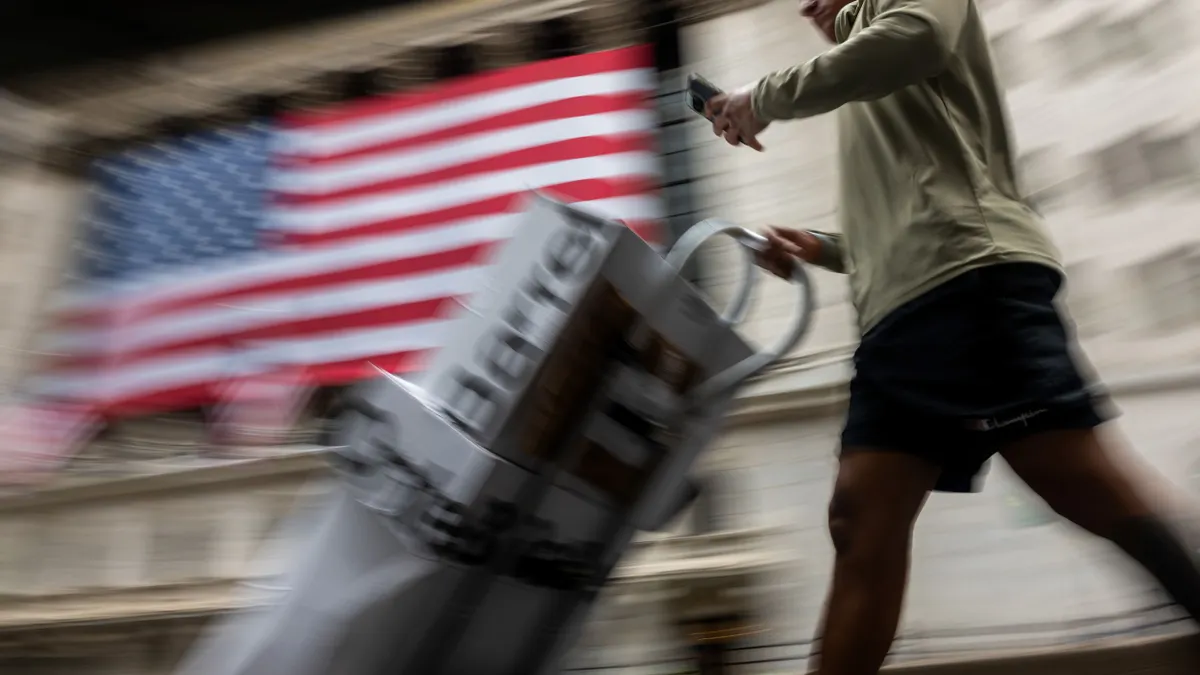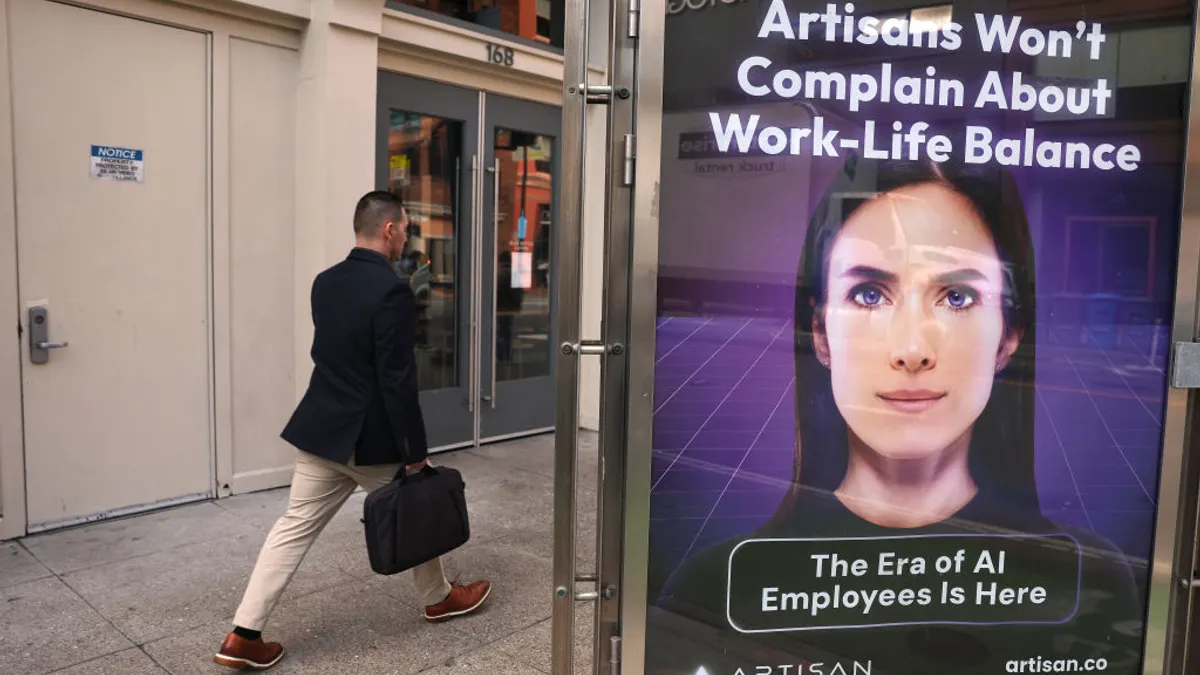Who says doing business and doing good don’t mix? Companies across the globe have been doing both, with a renewed commitment to corporate social responsibility (CSR). Companies are doing their part for the planet and getting employees involved by offering "sustainability benefits."
“Sustainability” has no single definition. But experts on the subject agree that the word refers to the way companies remain profitable and competitive — now and into the future — while considering employees, customers, communities, social issues and the environment. Today, sustainability and CSR often are interchangeable terms.
In short, a triple bottom line of people, profits and the planet drives sustainable organizations and their operating strategies.
Businesses can balance the need for economic growth with the active protection of the environment, including removing the carbon footprint of toxic substances and considering the needs of an evolving society through environmentally-aligned projects. Sustainable companies operate on the notion that they can make a profit and expand into new markets and still be good environmental stewards by lowering toxic emissions from their own manufacturing processes or making products and providing services that help address social concerns.
Computer manufacturer Dell, for instance, now ships 70% of its notebooks in material made of bamboo and mushrooms. The nontoxic, recyclable packaging is even harvested near its source.
Corporate social responsibility: A mark of good citizenship
More tool than a strategy, a focus on sustainability demonstrates that a company is a responsible corporate citizen. Through CSR, companies demonstrate their support for causes or activities that benefit society in general. Corporate sponsorship of fundraisers for health organizations or arts programs are examples of community projects.
The District of Columbia Sustainable Energy Utility (DCSEU) helps local residents, businesses and institutions save money and energy through efficiency and renewable energy programs. Led by the Sustainable Energy Partnership and under contract to the Department of Energy & Environment (DOEE), the DCSEU, is a nonprofit committed to environmental preservation, community engagement, and economic development. Vermont Energy Investment Corporation (VEIC), DCSEU's parent company, also has similar contracts in Ohio and Vermont. Employees participate in a benefits program that encourages sustainability.
Besides aiding and supporting communities, social responsibility programs enhance employee morale, recruiting and retention, says Randall Micek, regional vice president of Robert Half Management Resources. These programs also have external benefits for employees, he says, including networking opportunities, brand awareness and reputation-building.
“People want to support and work for companies that serve a larger purpose and help their communities,” says Micek. “Companies with strong social responsibility programs make themselves more attractive as employers and to potential customers.”
The Timberland Company, maker and retailer of outdoor wear, has a longstanding commitment to manufacturing products responsibly, protecting and restoring the outdoors, and serving surrounding communities, says Atlanta McIlwraith, Timberland’s senior manager of community engagement and communication. She calls the New Hampshire-based company and its employees Earthkeepers.
“[CSR] is in our DNA,” says McIlwraith. “Employees have become champions for these values, and have a special affinity for hands-on community service and engagement.” Timberland’s Path of Service employee volunteer program gives workers paid time off to serve their communities as they wish. When launched in 1992, the program allowed 16 hours of volunteer time. Today, employees have as much as 40 hours of paid time to devote to service.
CFOs weighed in on a recent survey by Robert Half Management Resources on CSR’s value, with 80% of them citing social involvement as somewhat to very important for their companies.
Sustainability benefits: Traditions and trends
To improve engagement in sustainability programs, DCSEU and VEIC employees receive a sustainability benefit specifically meant to encourage earth-friendly behaviors. VEIC set out in 2007 to lower employees' household carbon footprints by 50% within 20 years; the benefit began as a way to help employees measure their progress.
DCSEU pays workers "sustainability dollars" on top of their regular salaries for purchasing sustainable goods and services. DCSEU employees receive $300 or more a year to buy LED light bulbs, locally grown organic foods, energy-saving home improvements and train tickets as an alternative transportation mode to cut down on carbon emissions from vehicles. Employees can also purchase farm shares to buy produce or buy electric vehicles, including cars and bicycles. Smart thermostats and cold-climate heat pumps are the newest products.
“The goal is to incentivize our employees to spend locally and to build sustainability into our company culture,” said Andy Vota, president of Sustainability Benefits. VEIC employees have lowered their carbon footprint an average of 24% during the past 10 years, Vota said. The program also aims to bring economic benefits to the local community.
Depending on how employees use their benefit, some might get back 100% of their investment. More than 15% of DCSEU employees, like Andrew Shaw, a business solutions analyst, use their benefit to buy a weekly farm box from a local company called From the Farmer. Most of the produce comes from family-owned farms in the area. Employees are reimbursed for 75% of the total cost of the box. From the Farm's president and founder, Jason Lundberg, says that with support from DCSEU, his company is able to feed more people than it could on its own.
This year, Timberland celebrated the 10th year of its Victory Garden, a plot of fresh fruits, vegetables and flowers near its Stratham, NH, headquarters, says McIlwraith. An employee with a passion for gardening and doing good for the community started the garden. Every year, a group of Timberland employees volunteer to oversee and cultivate the 1,000-square-foot garden with raised beds. Many workers use their Path of Service hours to work the garden.
Steps towards sustainability: Build up and outreach
Micek recommends fostering enthusiasm for sustainability benefits with employees by demonstrating how they’re making other lives better. Employees will enjoy seeing how they’re helping others, which can be a morale-enhancer, he adds.
To inform employees about activities and encourage their input and involvement, Micek suggests:
- Promoting activities and providing updates through meetings, communication and company Intranet;
- Including employees in the planning process;
- Emphasizing how employees are helping the community, giving concrete examples such as how many pounds of food they packed for the local food bank;
- Sharing information about activities and causes on the company website and social media; and
- Getting customers involved and excited about an activity by asking them to donate to a food drive or other cause the company is sponsoring.
Micek warns companies against “patting themselves on the back” when publicly promoting CSR activities to avoid appearing disingenuous.
For small businesses with limited resources, Micek suggests starting with small, low-cost activities, preferably those that are aligned with the company and employees’ values.




















